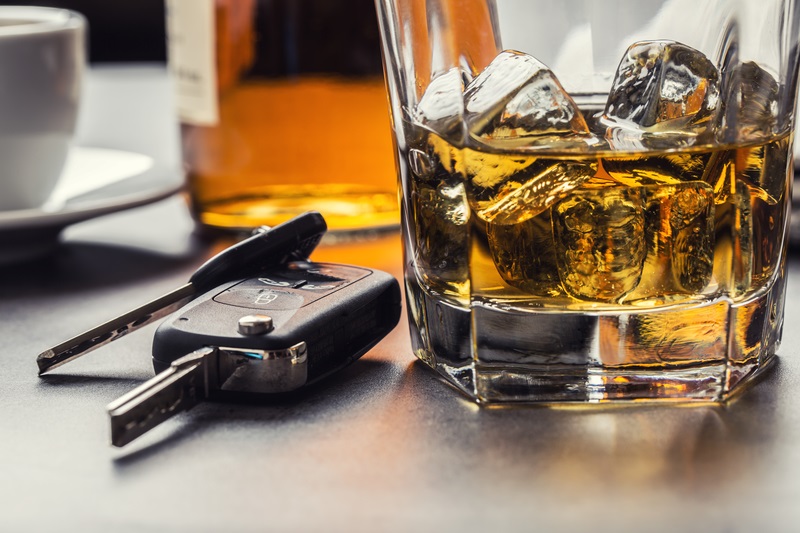If you’ve ever had a loved one arrested or found yourself in legal trouble, you’ve probably asked the urgent question: how much is bail for DWI? The answer isn’t as straightforward as you’d expect. Bail for driving while intoxicated—commonly called DWI—can range anywhere from a few hundred dollars to tens of thousands, depending on several key factors.
In this comprehensive guide, we’ll break down the variables that affect DWI bail amounts, explain how the bail system works, and show you how different circumstances—like prior convictions or injury-related charges—can drastically shift what you’ll pay. Along the way, we’ll share real-life stories to make these legal concepts easier to grasp.
By the end, you’ll not only understand how much is bail for DWI, but also how to make informed decisions when it matters most.

What Exactly Is Bail in a DWI Case?
Before we dive into the numbers, it’s important to understand what bail actually means in a DWI case. Bail is not a fine or punishment—it’s a financial guarantee that the accused will return to court for their hearings. Once posted, it allows the individual to be released from custody while the case proceeds through the legal system.
Bail amounts are typically set by a judge or magistrate, and they’re based on a combination of local guidelines and specific case factors. While there are standard bail schedules in many jurisdictions, judges still have the discretion to raise or lower the amount depending on the circumstances.
How Much Is Bail for DWI on a First Offense?
Let’s start with the baseline. For a first-time offender with no aggravating circumstances, the answer to how much is bail for DWI generally falls in the $500 to $2,000 range.
This is true in many jurisdictions across the U.S., including Texas, where most counties follow a general bail guideline. That means someone with no criminal record who gets pulled over, fails a sobriety test, and is cooperative with law enforcement will often have their bail set on the lower end of the spectrum.
Real-Life Example: A Simple Mistake
Take Daniel, a 28-year-old marketing consultant in Houston. After having a couple of drinks at a company happy hour, he was pulled over on his way home. He failed a breathalyzer and was charged with DWI. No one was injured, he was respectful, and it was his first run-in with the law. His bail was set at $1,000, which his family posted that night.
In Daniel’s case, the cost was more than financial—his professional reputation took a hit, and the DWI stayed on his record. But from a bail perspective, this was a straightforward, first-time offense.
What Factors Can Raise the Bail Amount?
Now, let’s explore what happens when the case is more complicated. The most important thing to remember when asking how much is bail for DWI is this: the amount can jump significantly based on the details of the arrest.
1. Prior DWI Convictions
If this isn’t your first offense, the court will treat your case more seriously. A second DWI may raise bail to between $2,000 and $5,000—or higher in some jurisdictions. A third DWI could be classified as a felony, and bail might start at $10,000 or more.

2. High Blood Alcohol Content (BAC)
A BAC far above the legal limit (e.g., 0.15% or higher) often results in higher bail because it shows an elevated level of recklessness. In many counties, a BAC of 0.15 or more qualifies as an aggravated DWI.
3. Involvement in an Accident
If your DWI involved a crash—even if it didn’t cause injuries—expect bail to rise. Accidents increase the risk profile, which judges take seriously.
4. DWI with Injury or Death
In cases where the DWI caused serious bodily injury or death, bail can reach $25,000 to $100,000 or more. These are usually felony charges and carry harsh consequences.
5. Presence of Minors
Driving under the influence with a child passenger is considered a serious offense in most states. In Texas, for example, it’s afelony, and bail often starts around $10,000 and goes up depending on other factors.
Can Bail Be Denied in a DWI Case?
Yes, though it’s rare. In extreme situations, the court may deny bail altogether. This might happen if:
- The individual poses a flight risk
- There’s a history of failing to appear in court
- The DWI resulted in death or catastrophic injury
- The defendant is on probation or parole
When bail is denied, the person must remain in custody until trial or until a bond hearing provides a different outcome.
Who Sets the Bail Amount?
Another important point when asking how much is bail for DWI is understanding who actually determines that amount. In most cases, it’s a magistrate judge who reviews the arrest details, criminal history, and circumstances before setting bail. This often occurs at a bond hearing within 24 to 48 hours of arrest.
In some counties, there’s also a bail schedule—a guideline chart showing typical bail amounts for specific offenses. While judges often start with this schedule, they are allowed to adjust it.
What Are Your Options for Posting Bail?
Once bail is set, you have a few different ways to secure release:
1. Cash Bail
You (or a friend or family member) pay the full bail amount in cash. This is refundable at the end of the case, as long as the accused shows up for all court dates.
2. Bail Bond
If you can’t afford the full amount, you can use a bail bondsman. You typically pay 10% of the bail amount as a nonrefundable fee, and the bondsman covers the rest.
3. Personal Recognizance (PR) Bond
In some low-risk cases, especially first offenses, the judge may release the defendant on their own recognizance, meaning no money is required—just a promise to appear.

Real-Life Example: Bail Bonds and Financial Strain
Consider Maria, a single mother in Dallas whose adult son was arrested for a second DWI. The court set bail at $5,000, and Maria didn’t have that kind of money. She contacted a bail bond company and paid $500 (10%) to secure his release. While it was a relief to have him out of jail, the financial strain lasted months.
Are Bail Amounts Refundable?
Yes and no. If you post cash bail, the full amount is typically refunded once the case concludes and the defendant has met all court requirements. However, if you go through a bail bondsman, your 10% fee is not refundable—it’s the cost of using their service.
If the defendant skips court, the money is forfeited, and additional charges may apply. For that reason, it’s important to think carefully about who you’re posting bail for.
How Long Do You Stay in Jail Before Bail Is Set?
If you’re arrested for DWI, you’ll usually appear before a judge within 24 to 48 hours for a bail hearing. However, in busy urban areas like Houston, delays can happen, especially over weekends or holidays.
Knowing how much is bail for DWI is one thing—being stuck in jail waiting for that decision is another. That’s why it’s important to contact a lawyer or bail bondsman as quickly as possible after an arrest.
How Does Bail Differ by State or County?
This is a huge point that many overlook. The answer to how much is bail for DWI will vary depending on your location. Here are a few examples:
- California: First-time DWI bail averages $2,500–$5,000
- Texas: First-time offenses often range from $500–$2,000, but can escalate quickly
- Florida: Bail may start at $1,000 for first offenses, but jump for any aggravating factors
- New York: Judges may prefer pretrial monitoring instead of bail for low-risk defendants
In rural areas, bail tends to be lower, but pretrial release programs may be limited. In larger metro areas, judges may rely more heavily on risk assessments and monitoring tools.
What If You Can’t Afford Bail?
If you can’t afford bail, you may:
- Request a bail reduction hearing
- Apply for a public defender who can argue for lower bail
- Ask for pretrial release programs that use ankle monitors or check-ins instead of jail

In some cases, courts are moving toward bail reform, especially for non-violent offenses. Judges may agree to release defendants under supervision rather than keeping them in jail due to financial hardship.
Final Thoughts: Understanding How Much Is Bail for DWI
So, how much is bail for DWI in most cases? The truth is, it depends. For first-time, non-violent offenses, it might be $500 to $2,000. But add in a prior conviction, an accident, or a high BAC, and the amount can skyrocket.
Bail is not just about the charge—it’s about risk, behavior, history, and local court dynamics. If you or a loved one faces a DWI charge, understanding the bail process early can help reduce panic, avoid delays, and save money in the long run.
Whether you’re posting bail for the first time or trying to help someone else navigate the system, always consider contacting a defense attorney. Their guidance can make the process smoother—and even save you thousands.

